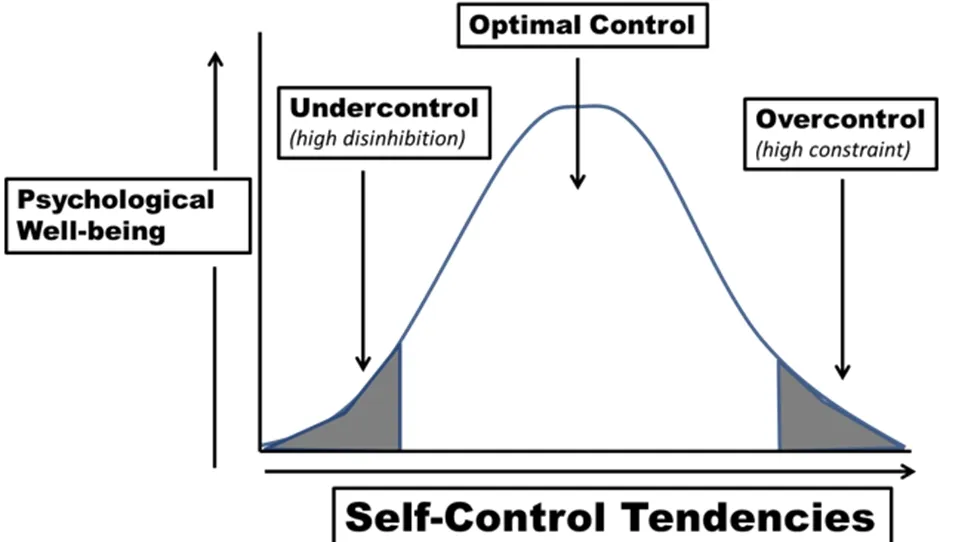Everyone has a personality–it’s kind of important! Research shows that personalities tend to be in two broad categories–overcontrolled (OC) and under controlled (UC). Tending to be OC or UC is not a problem. But sometimes problems can come from your basic temperament due to extremes in behaviors. Think about it! For so long mental health focused on helping people have more self-control. The idea was that the more self-control you have the better. Turns out that you can actually have too much self control.
An overcontrolled person who is struggling with their mental wellness often exhibits a set of characteristics that can impact their interactions and overall well-being. These characteristics may include:
1. Perfectionism:
They strive for flawlessness and set excessively high performance standards, often accompanied by overly critical self-evaluations. This can sometimes lead to the individual feeling paralyzed and unable to take action because it’s so exhausting to do everything with such pressure or out of a fear of not being good enough.
2. Inflexibility:
They have a rigid approach to life and may struggle to adapt to new situations or changes in plans. Flexible thinking is important in this world. Imagine that you had your heart set on becoming a repair person for Model-Ts only to learn the market is very limited. Flexible thinking allows you to not be stuck, thinking that goal is the only one. You can pivot and make new plans.
3. Inhibition:
They tend to suppress their emotions and desires, which can lead to a lack of spontaneity and difficulty in expressing feelings. Suppressing often also leads to masking. It can make it difficult to make friends because people don’t trust people when they can’t read their reactions.
4. Excessive Orderliness:
They prioritize organization and control, sometimes to the point of obsessiveness about cleanliness or order. Their order may be unique to themselves, but they are absolute about their stacks of items or papers.
5. High Self-Control:
They exhibit extreme self-discipline and restraint, often avoiding risks and sticking to routines. Individuals with anorexia are usually over-controlled. Think of the self-control in not eating to the point you are making yourself ill.
6. Avoidance of Conflict:
They may avoid confrontations and conflict, preferring to maintain harmony and avoid any situations that could lead to disagreement or emotional discomfort. They often walk away from conflict. Sometimes they’ll let you know and sometimes you may not even realize there was a problem but you don’t hear from the person anymore.
7. Sensitivity to Criticism:
They may be overly sensitive to feedback or criticism, often taking it personally and feeling deeply hurt by negative comments.
8. Reluctance to Delegate:
They may struggle with trusting others to complete tasks, leading to a tendency to micromanage or take on too much responsibility themselves.
9. Anxiety and Stress:
The need for control can lead to heightened levels of anxiety and stress, particularly when things do not go as planned.
10. Limited Genuine Social Interactions:
They may have difficulty forming deep, meaningful relationships due to their controlled and reserved nature. They can be surrounded by people, but not truly connected. They often feel lonely.
These characteristics can lead to challenges in both personal and professional life, affecting relationships, job performance, and overall happiness. Recognizing these traits is a first step toward finding ways to balance control with flexibility and openness.
Radically Open DBT was developed specifically to help those who are overcontrolled. Call us at the DBT Center of Houston. We can help.

